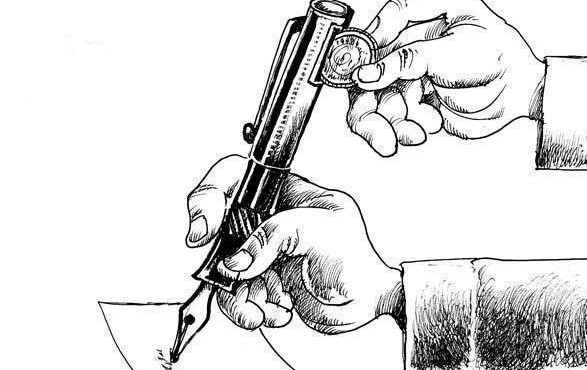Due to financial difficulties, the volume and quality of the important content will weaken; the newsrooms will lose people due to the impossibility to provide quality salaries; journalists will “bypass” by making their own portals and will be attached to the payroll of agencies, companies and political parties as influencers.

Ljupco Zikov
The conclusions about what media independence means today are a product and analysis of the whole “ocean” of everything we consider media in general: classical media (television, newspapers, radio), Internet media (websites, portals, Internet video, podcasts), up to the segment that probably makes the biggest destruction and distortion in the so-called media space: the social networks, to which all the other media I have listed before are glued. But, the probable problem here is that some companies’ press services (individuals or agencies), various governmental and non-governmental organizations, political parties, and even specific (specially paid) individuals – fashionably called “influencers” claim to be media, too…
Everyone writes something, everyone has become important, exclusive… or, as a friend of mine from Serbia recently told me: “Brother, everyone is ‘influencing’ something, this is what they call ‘journalism’ and ‘media’ these days…”
The direct consequence of this inflation of content is the reduced quality of the content that is read or viewed. We come across a lot of content on social networks! There is no creative editorial policy; there is no creativity in the texts! You make a portal in three days, you do not need specially trained journalists, you can even post texts yourself from your kitchen!
We are witnessing a dramatic decrease in the price of the journalistic product. There is a relativizing of the meaning and the influence of media as we knew seven to ten years ago.
Today, an average politician can organize a budget to fund three portals and two to three influencers on Facebook and can become very important and viral and read (though not relevant) in public! In the public space located in our phones, various manipulations, speculations, political and business insinuations collide… Corporate texts, invitations for events and learning courses, political and party announcements, jokes and teasing… And this is the content we consume, all at once, 3 to 5 hours a day through social networks.
Hence, journalism and the media are largely compromised these days, and that is why the media, especially the classic ones, have a problem with sustainability in the short and medium term. In the long run, the media that will be transformed and will enter the phase of total digitalization will survive. At the same time, they have to maintain quality content production, brand recognition and quality and sustainable editorial policy (the character of the medium). But, all this is in the long run. Why?
The companies, as the biggest advertisers at the moment, want more and more to escape the zone of classic media (although some televisions still hold up well) and resort to that cheap marketing: an ad goes to a portal, the portal goes to Facebook, and we all know the rest; in second variant, the ad and the campaign go to an agency, and the agency does the same.
All this is dramatically cheaper for the company that had been advertising previously. But, I would add that it is a poor quality advertisement for the company, because the advertising company loses the focus of its advertisement, and more importantly, the attention of the media.
The revenues of the classic media have been falling sharply in the recent years, while the revenues of the digital media are not growing fast… This financial matrix makes the transformation of the media difficult and very uncertain, and therefore, I do not predict good days for the media in the short term. Due to financial difficulties, the volume and quality of the important content will weaken; the newsrooms will lose people due to the impossibility to provide quality salaries; journalists will “bypass” by making their own portals and will be attached to the payroll of agencies, companies and political parties as influencers. But, even there, there is no place for everyone.
Journalism turns into naked propaganda (and a cheaply paid one).
Conclusion: in such conditions, the independence of the media decreases and, in many cases, there is no independence.
So, this is the magic circle…
How do we get out of it?
Only with a strong digital transformation! But, at the same time, with investing and building credibility and strong media brands! We see that, globally, the biggest media brands in the last 20 to 30 years have not failed (or have failed only partially). They retained their character and credibility, and even strengthened their own brands through enhanced digitalization. Investing in quality content in today’s world is actually the main mantra for the survival of the media.
Ljupco, Zikov, founder of Capital Media Group



Leave A Comment